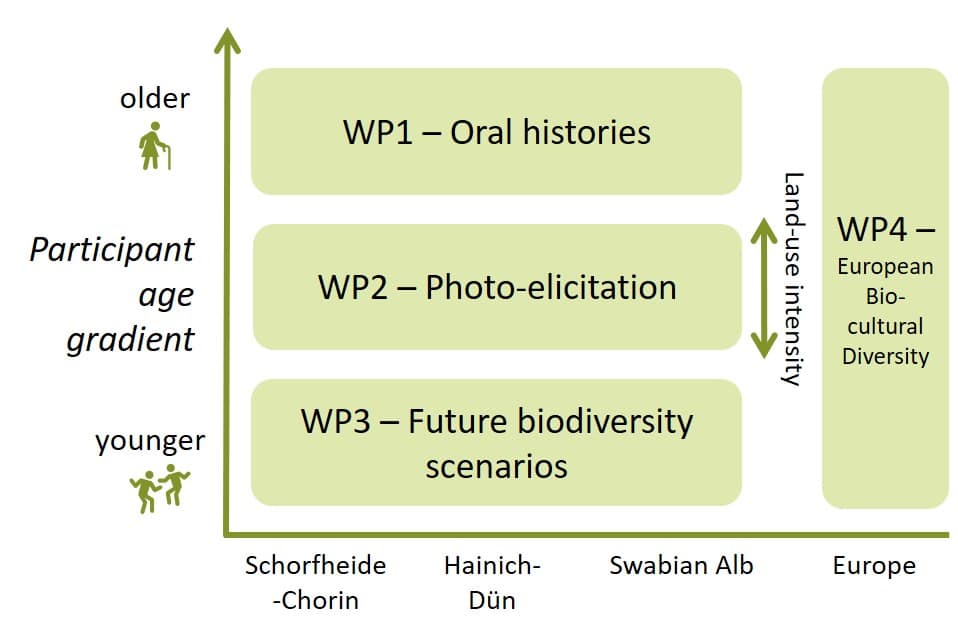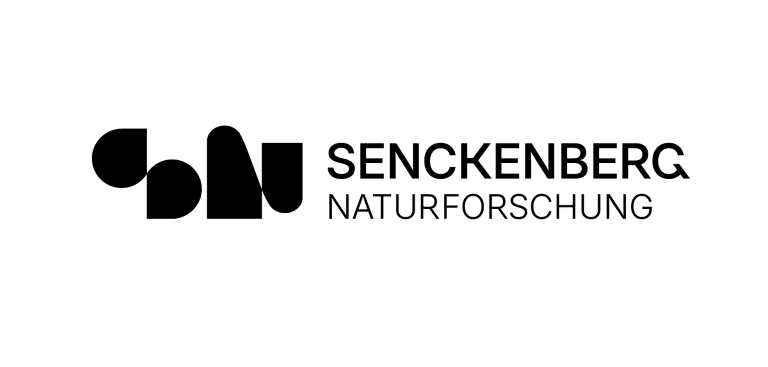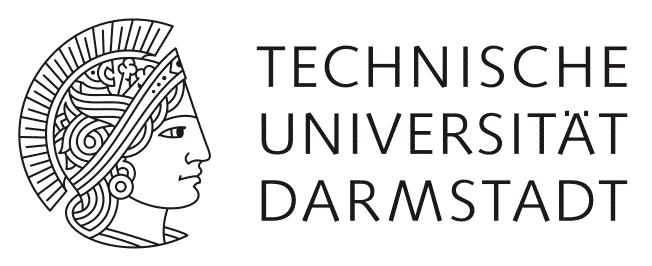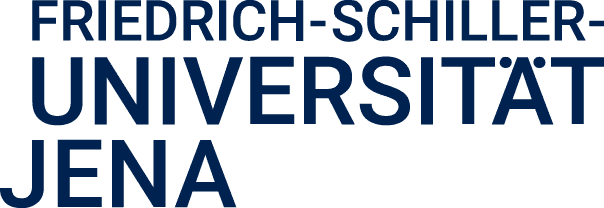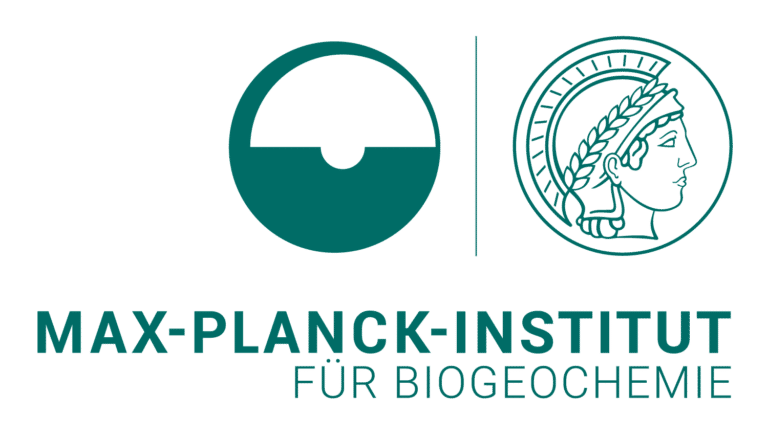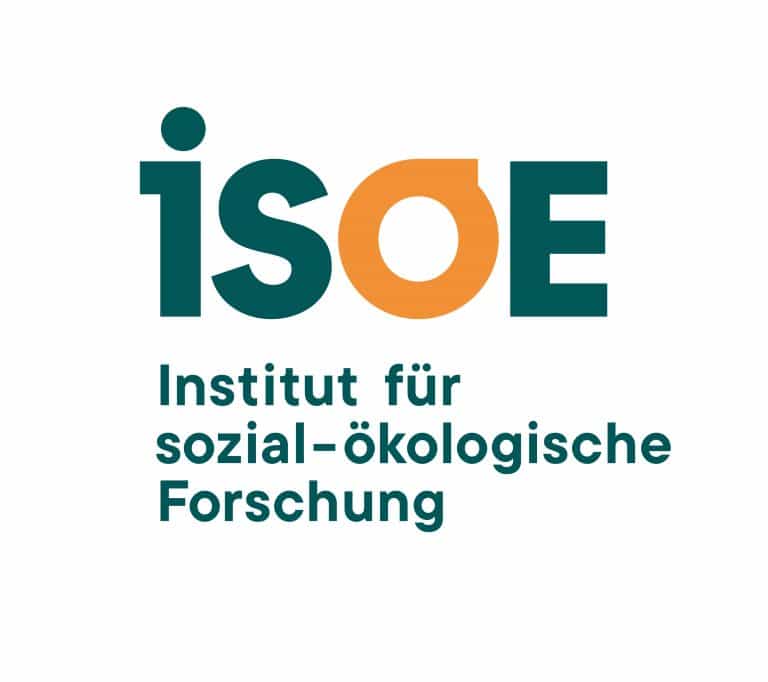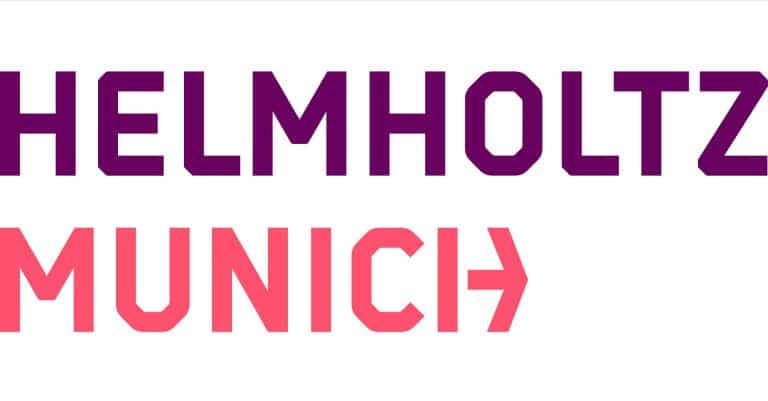Biodiversity Exploratories as Biocultural Landscapes: Past, Present and Future
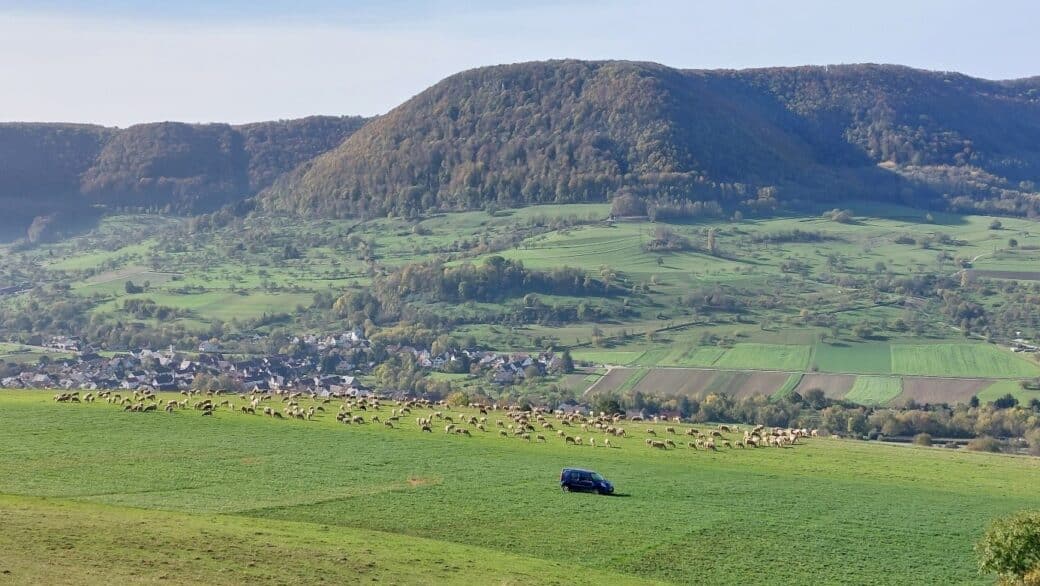
Agricultural intensification leads to biodiversity loss and can also erode cultural heritage, local identity and attachment to place. Biocultural diversity is an aspect of nature that arises from links and feedbacks between cultural diversity and biodiversity. Studying linkages between land use and biodiversity requires understanding of the larger couplings of biological and cultural diversity in landscapes, and the Biodiversity Exploratories provide a unique opportunity to assess this across three German landscapes.
By employing social-ecological research methods that tie human perception to nature and land-use, our goal is to build a comprehensive picture of past, present and future biocultural diversity across three regions. We expect that people’s relation to nature varies with cultural and ecological differences across space; and that these relations are expressed through language, ecosystem service preferences, place attachment and visions for the future.
Our project is structured across four work packages (Figure 1).
- WP1) We will analyse the historical landscape perspectives of local residents through oral histories, in order to identify local-ecological knowledge relating to the unique natural heritage of each region, and to identify regional linguistic diversity in relation to landscape.
- WP2) We will investigate how local residents perceive ecosystem services across a gradient of land-use intensity for forests and grasslands, using photo-elicitation.
- WP3) We will systematically develop future scenarios related to regional biodiversity with young people, including the drivers of biodiversity trends, as well as the enablers and barriers to future engagement with nature. These scenarios will be compared among the three regions.
- WP4) We will synthesize trends related to biocultural diversity in European farming landscapes by means of an expert workshop that will showcase the unique opportunity of the Biodiversity Exploratories for biocultural research.
